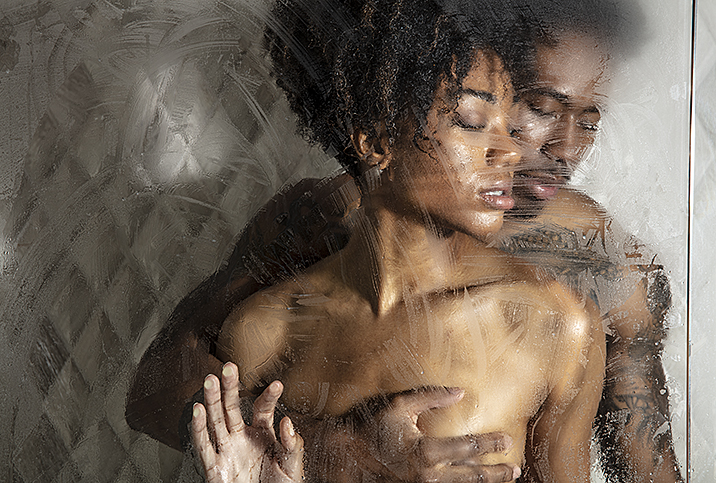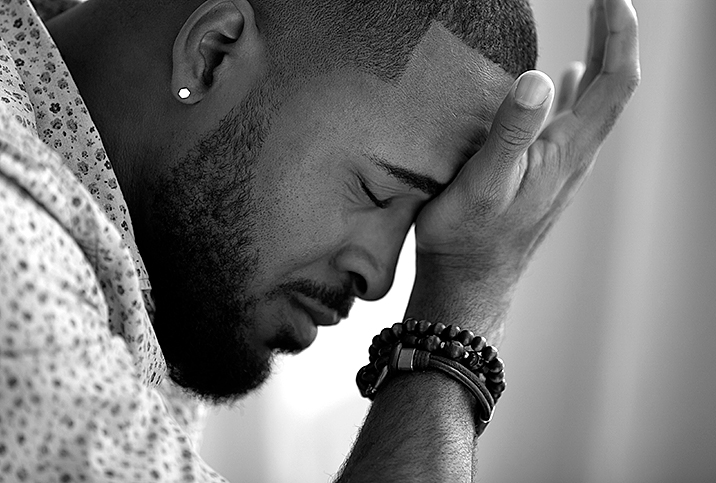The Cold Hard Truth on Cold Showers

There's nothing better than a nice hot shower—except maybe an ice-cold one. You've probably seen on holistic social media pages that cold showers are actually more beneficial than hot showers, though it's hard to know if there is validity to this or if it's just another health myth spreading like wildfire on social media.
The claimed benefits of cold showers
A study out of the Netherlands published in 2015, and updated in 2018, had participants between 18 and 65 years old take cold showers in 30-, 60- or 90-second increments for 30 days straight. After that period of time, 29 percent of participants reported a reduction in sickness but reported no difference in the number of days they were under the weather if they did get sick.
Of course, that's a fairly low number, and it could simply be attributed to the fact that everyone's body reacts differently to cold water.
Moving on to mental health claims for cold showers, one of the most popular is that they may decrease depression symptoms.
In a 2007 study with the Department of Radiation Oncology at Virginia Commonwealth University School of Medicine, researcher Nikolai A. Shevchuk wrote, "Exposure to cold is known to activate the sympathetic nervous system and increase the blood level of beta-endorphin and noradrenaline and to increase the release of noradrenaline in the brain. Due to the high density of cold receptors in the skin, a cold shower is expected to send an overwhelming amount of electrical impulses from peripheral nerve endings to the brain, which could result in an antidepressant effect."
The physical stress of a cold shower stimulates the brain and wakes you up, but it's unclear how long these results last.
Another study by Shevchuk tested cold showers as a treatment for chronic fatigue syndrome (CFS), but since the exact cause of chronic fatigue is still very much up for debate, it's hard to know for sure what the benefits of cold showers might be in this situation.
"Cold hydrotherapy is known to produce a significant analgesic effect, which could be beneficial in CFS, where pain symptoms are rather common," the study reads. "There is evidence that exposure to cold can activate some components of the brainstem arousal system. In particular, cold stress appears to stimulate the activity of serotonergic neurons of raphe nuclei and noradrenergic neurons of locus coeruleus, the situation that would be consistent with activation of behavior and enhanced somatomotor function of the brain."
The physical stress of a cold shower stimulates the brain and wakes you up, but it's unclear how long these results last. The study notes brief cold hydrotherapy appears to be safe and does not seem to have either short-term or long-term adverse effects on health.
Do cold showers have a placebo effect?
There are many claims of health benefits from cold showers, but it's not a one-size-fits-all solution. Aleksandra Krstevksa, at U.K.-based natural health company Evopure, has firsthand experience of the benefits of cold showers.
"Cold showers can help psoriasis as a skin disease because it can soothe the skin, and warm showers can hurt it," Krstevksa said. "Cold showers can also help sensitive skin if it's combined with the right skincare products. Also, the cold shower needs to be limited [to] between five to 10 minutes."
Krstevksa personally suffers from psoriasis, which results in red, itchy, scaly patches of skin.
"Even if I tried many creams, lotions, and other skincare products, I still cannot minimize the condition," Krstevksa explained. "After I consulted with a dermatologist, I started to add cold morning showers into my daily routine, and after three weeks, I've noticed improvements on my face and body."
However, Krstevksa knows cold showers aren't for everyone. "Hot showers are better for people who are having cardiovascular problems and similar conditions, because hot showers improve blood flow to joints and muscles," she noted. "Also, I know from experience hot showers helped me when I was facing a lack of sleep—a 10- to 15-minute hot shower before bed has improved my sleep."
This echoes one of the studies above that indicated cold showers help people with chronic fatigue syndrome stay awake and alert, so it makes sense hot showers would have the opposite effect.
Cold showers tend to be studied as they relate to specific illnesses, like depression and chronic fatigue syndrome, so at least for now, a generalized answer is out of reach. But if the power is out and all you can have is a cold shower, don't feel too bad, as there may be all kinds of hidden benefits.


















